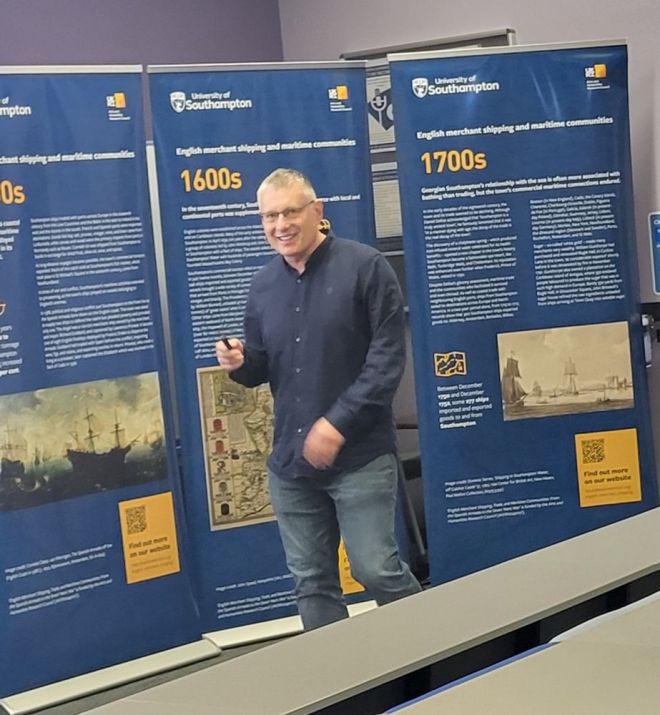Maritime Britain Conference


Maritime Britain
How did Britain become a global trading nation—and what can the lives of sailors, merchants, and coastal communities tell us about that story? On 16–17 September, the Maritime Britain team gathered leading voices in maritime history at the University of Southampton to explore these questions and to showcase a bold, Arts and Humanities Research Council (AHRC) -funded project that is redefining our understanding of Britain’s seaborne past.
With nearly £1 million in AHRC support, this ambitious, multidisciplinary project, led by Professor Craig Lambert, Dr John McAleer and Professor Jason Sadler, is reshaping how we think about Britain’s emergence as a maritime power. Moving beyond familiar empire-building narratives, it explores the lived experiences of seafarers and coastal communities, the influence of foreign shipping, and the global networks that tied Britain to Europe and the wider world. In March 2026, the project will release its most transformative output: a fully searchable, open-access database of more than one million ship voyages from 1400 to 1765. This will be the largest digital resource of its kind, unlocking new possibilities for research, teaching, and public engagement.
The conference showcased the project’s intellectual ambition. Three outstanding keynote lectures—by Professor Elaine Murphy (University of Plymouth), Professor Claire Jowitt (University of East Anglia), and Dr Richard Blakemore (University of Reading)—offered bold, field-defining perspectives that underscored the vitality of maritime history today. Their talks were a highlight of the event, sparking lively debate and pointing to exciting new directions for research.
Equally, panels brought together cutting-edge work on a wide spectrum of themes: from shipwrecks and seafarers’ health to politics, gender, and the intricate dynamics of life aboard ship. The diversity of approaches—from social and cultural history to digital and global perspectives—captured the project’s core commitment to interdisciplinarity.
This is only the beginning. As Maritime Britain moves towards launching its database, the project is set to transform how we study the sea and its communities—placing Britain’s maritime past into a richer, more connected, and more human story. For more information, visit our website: www.maritimebritain.org


You must be logged in to post a comment.